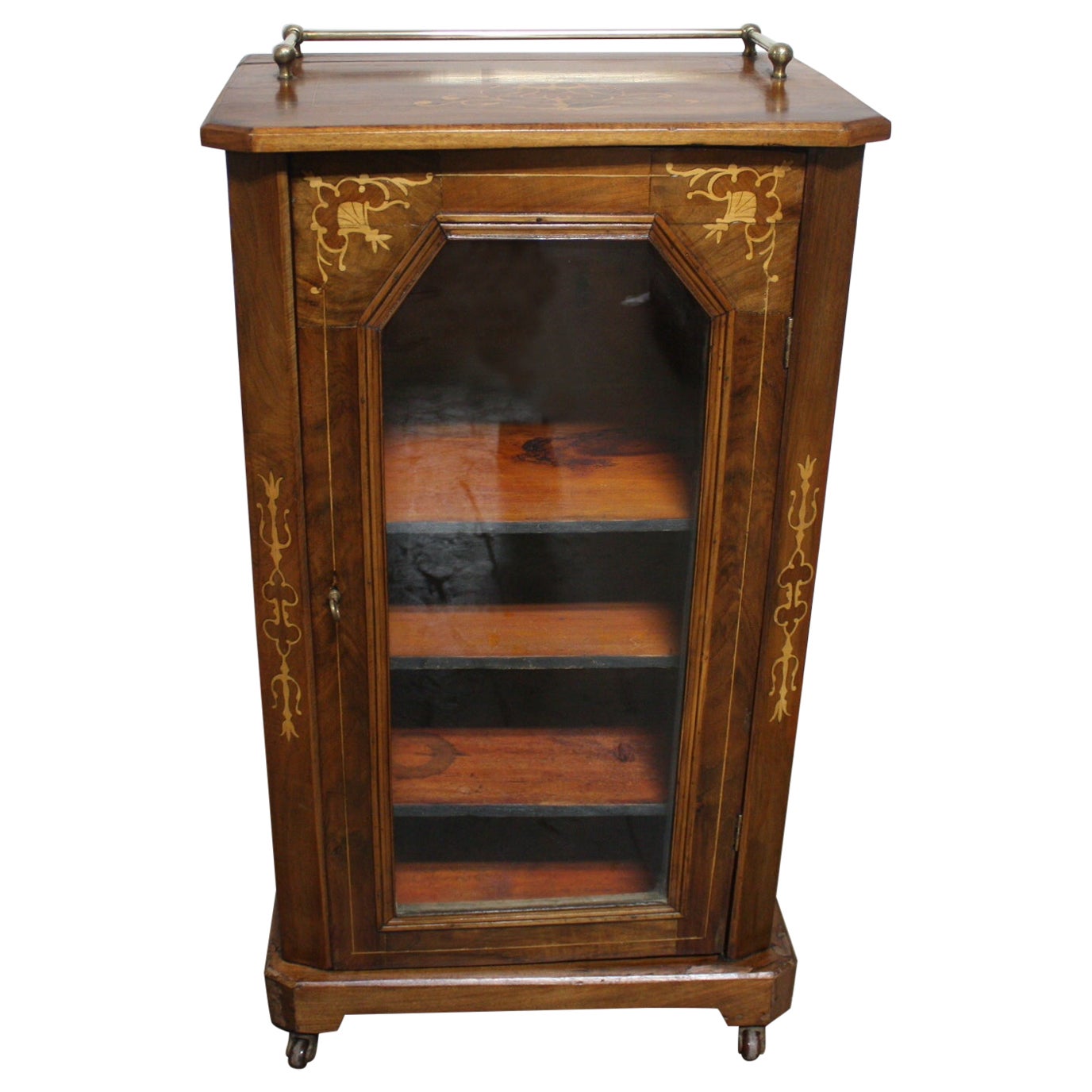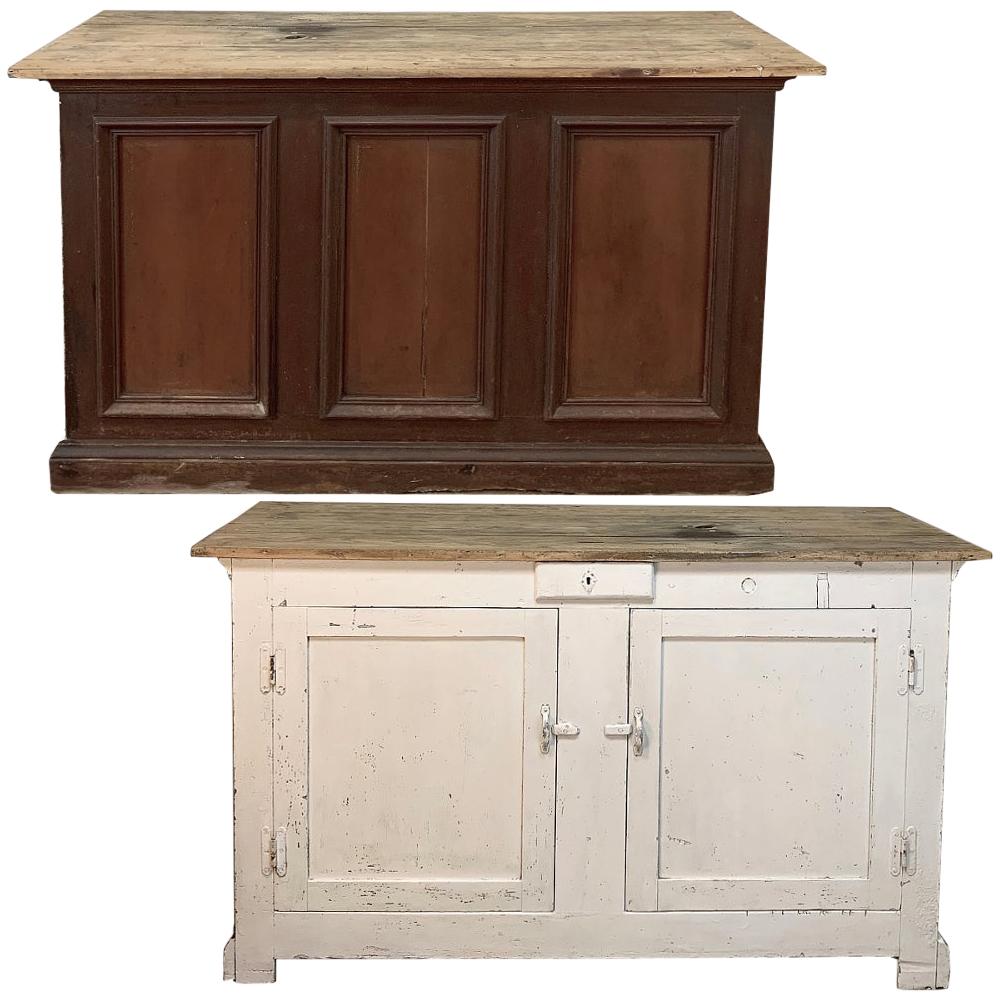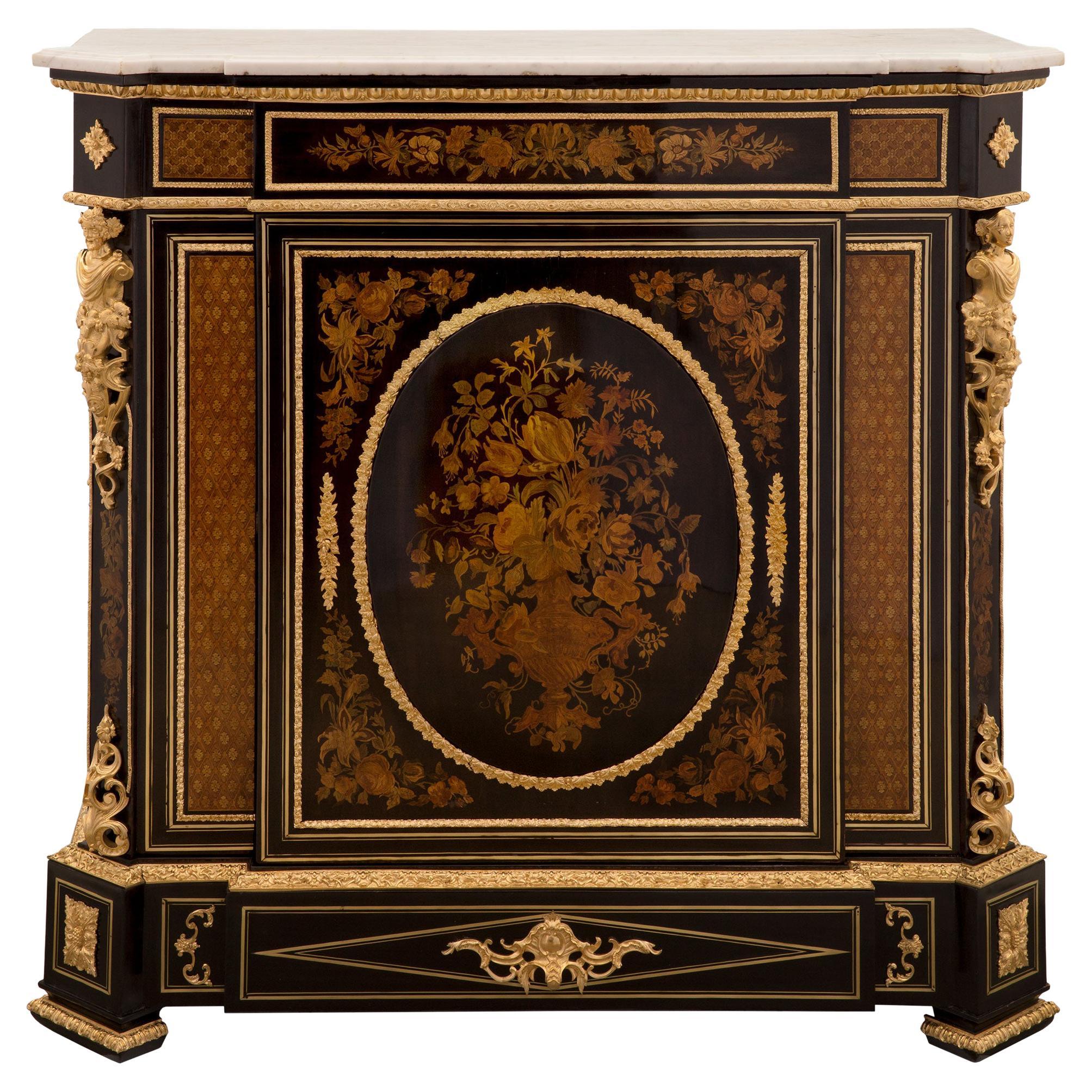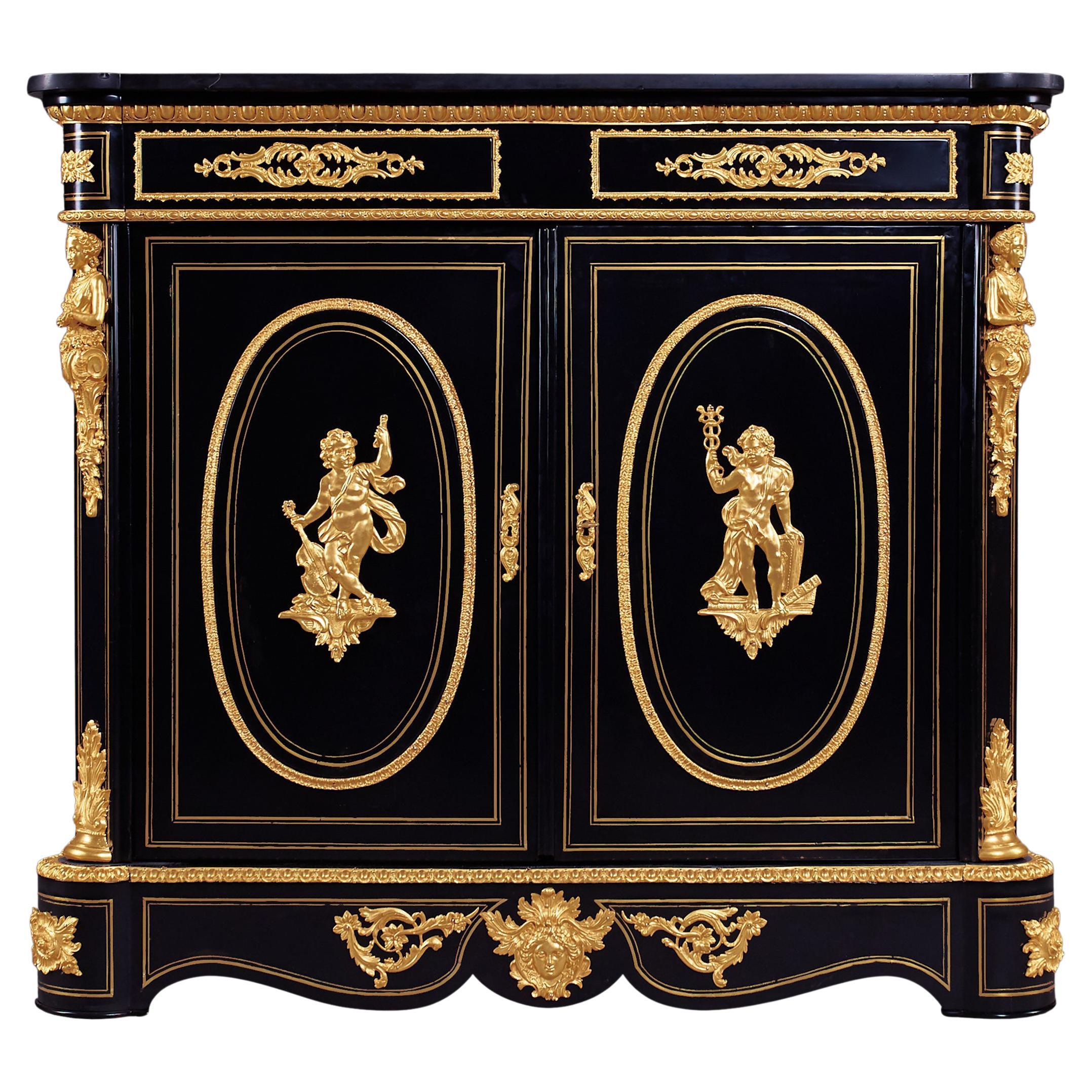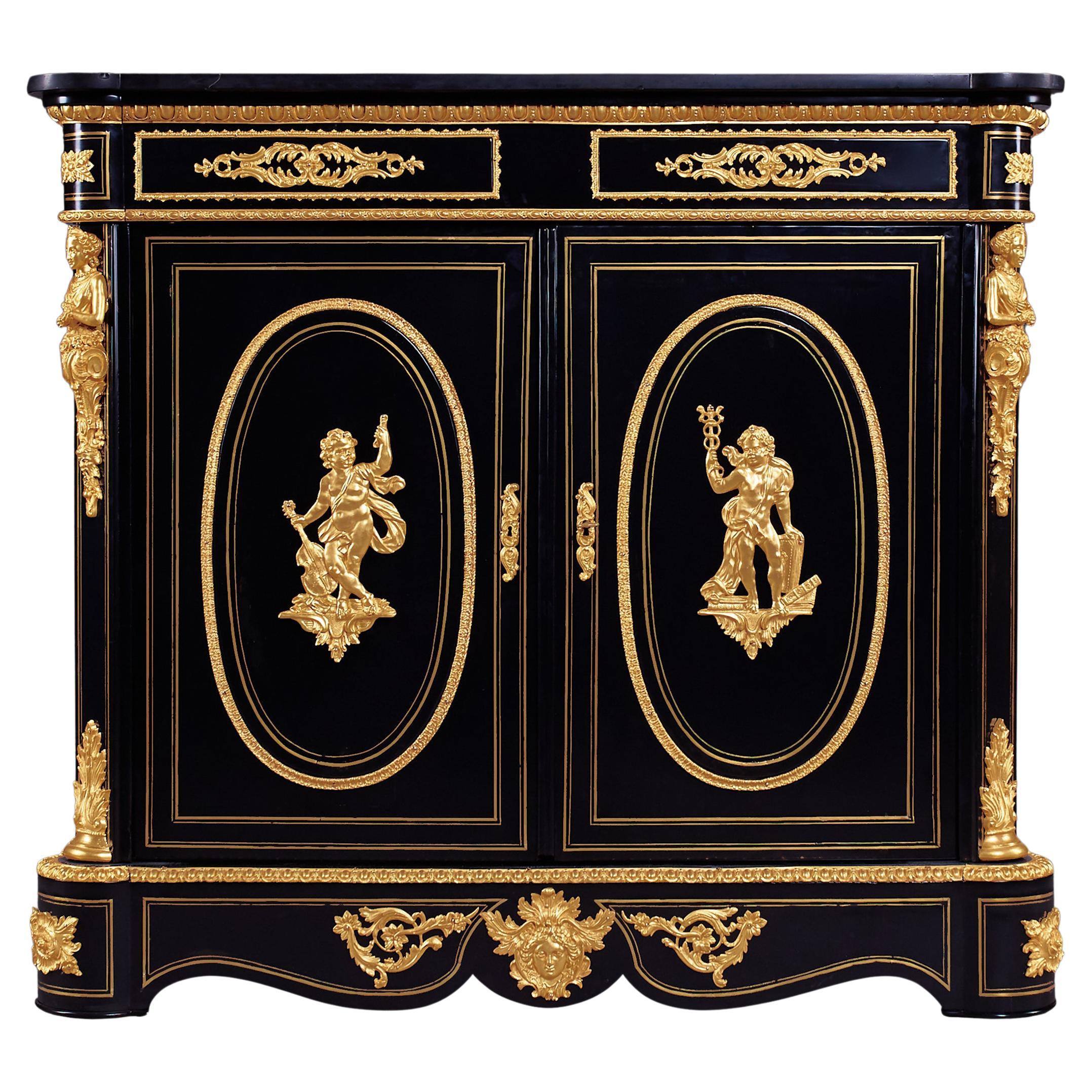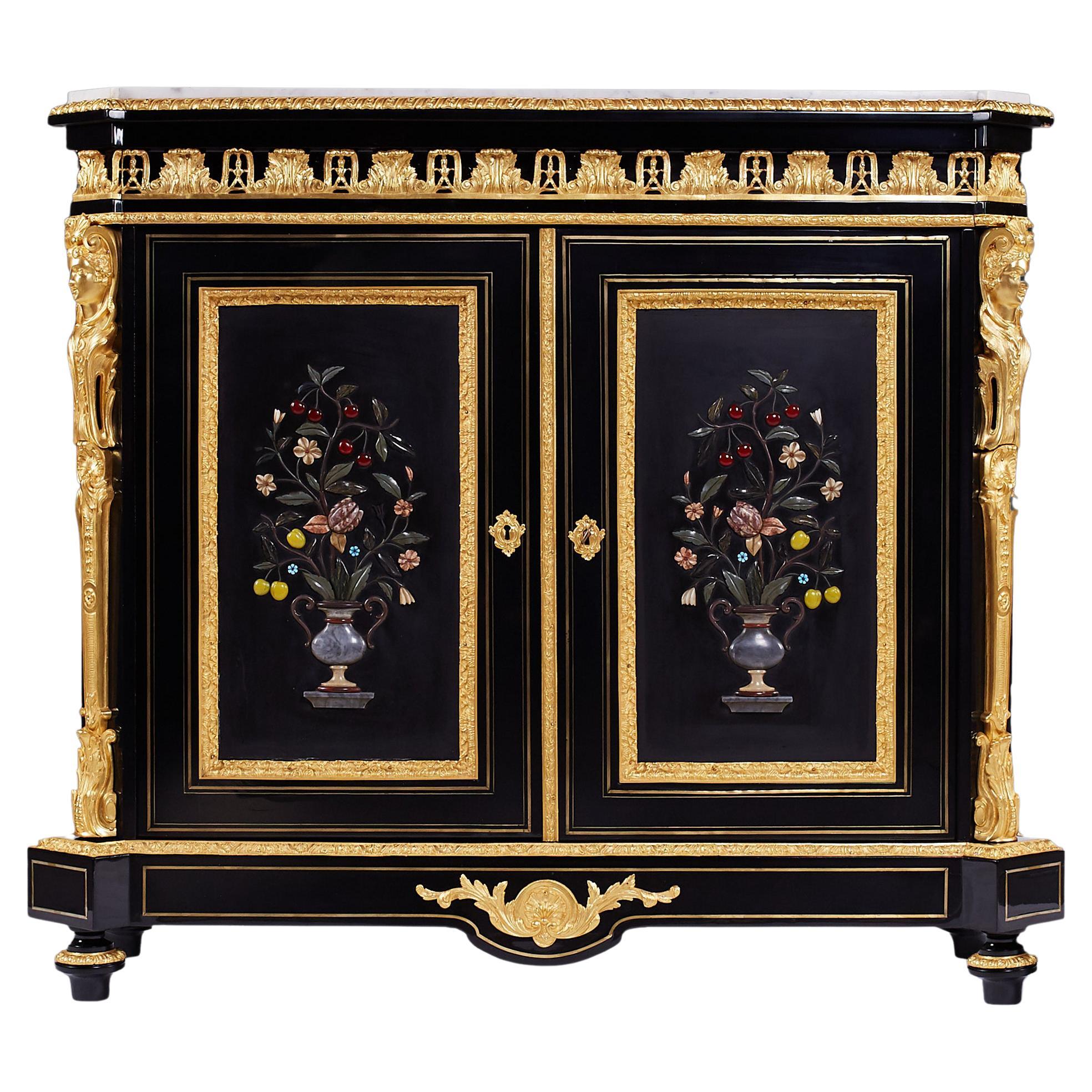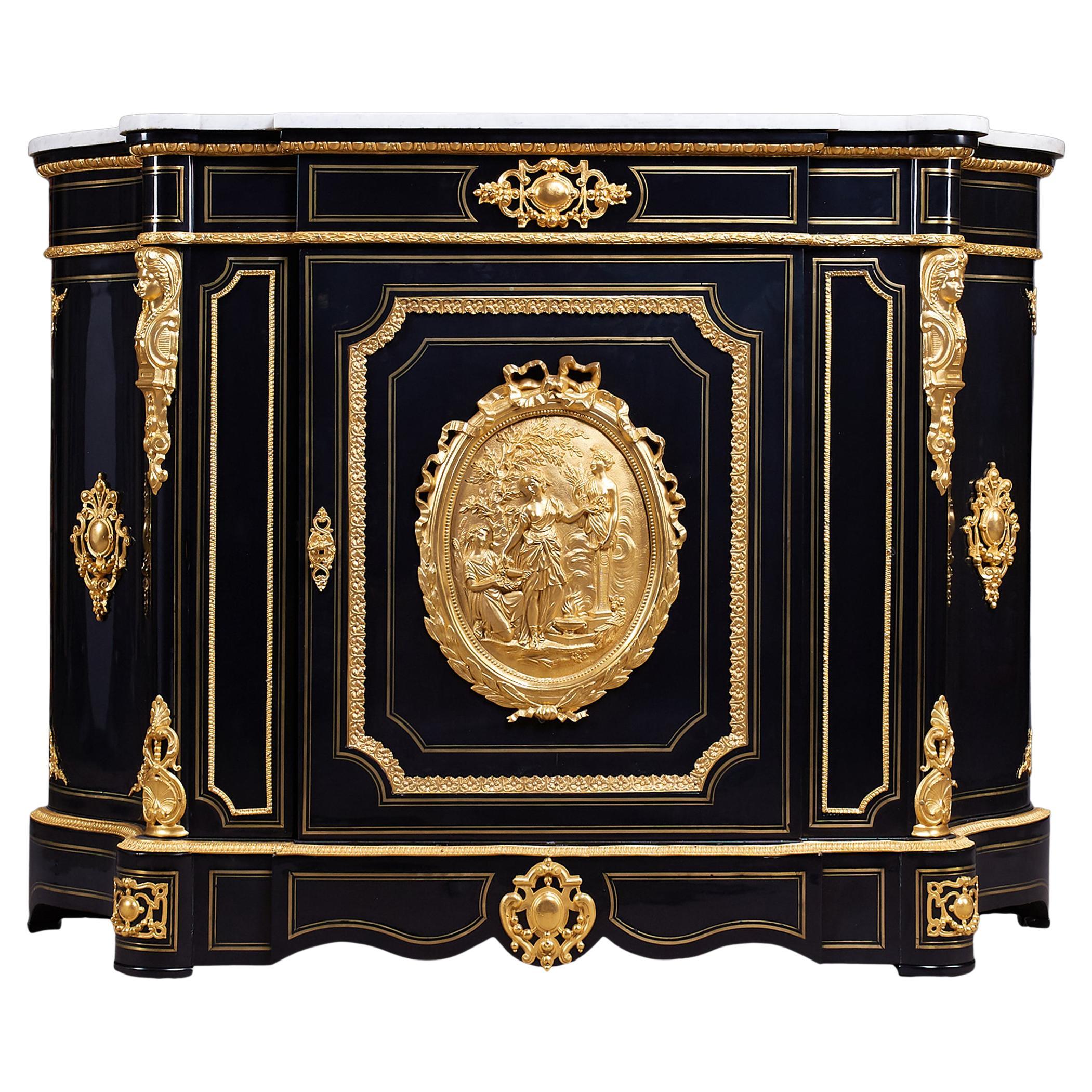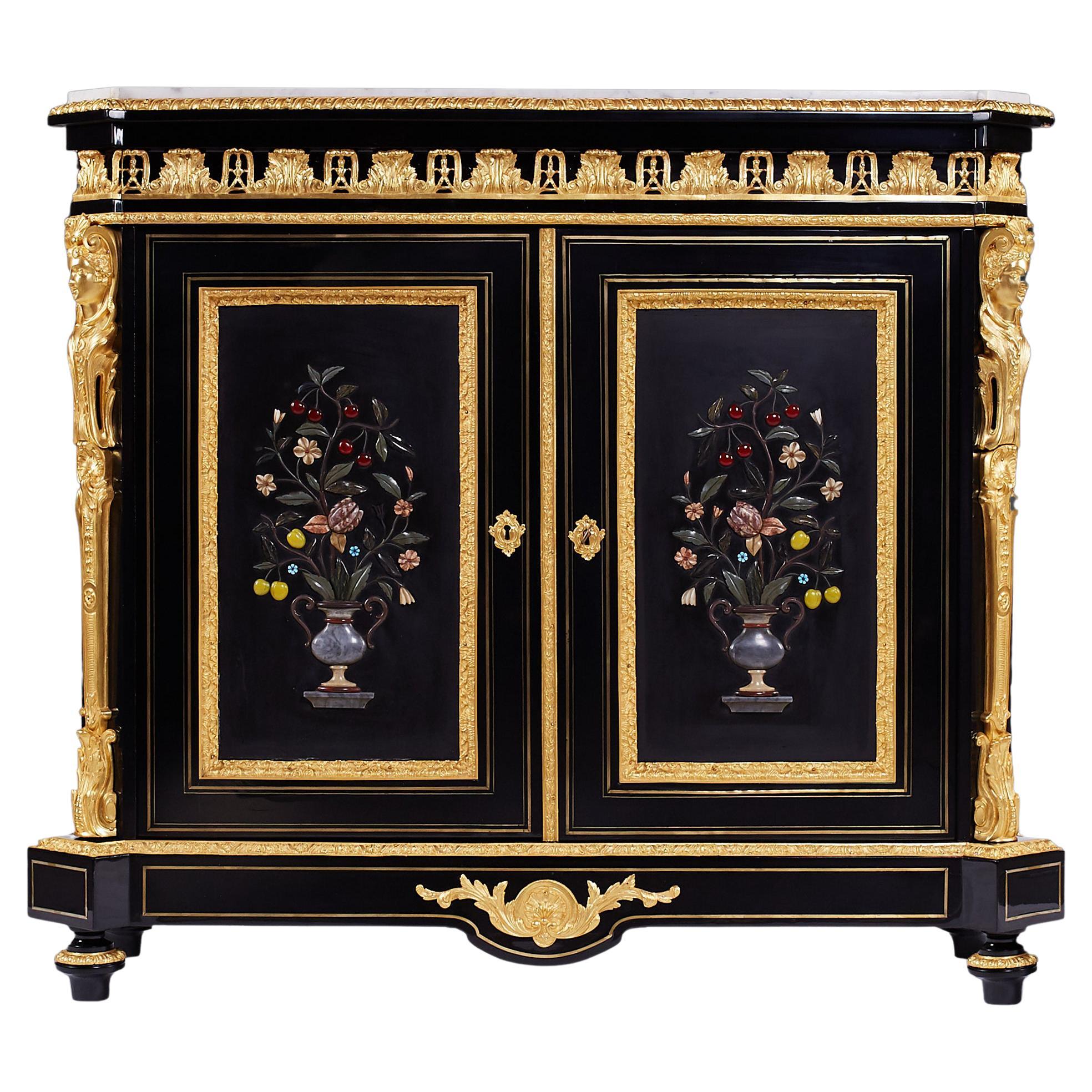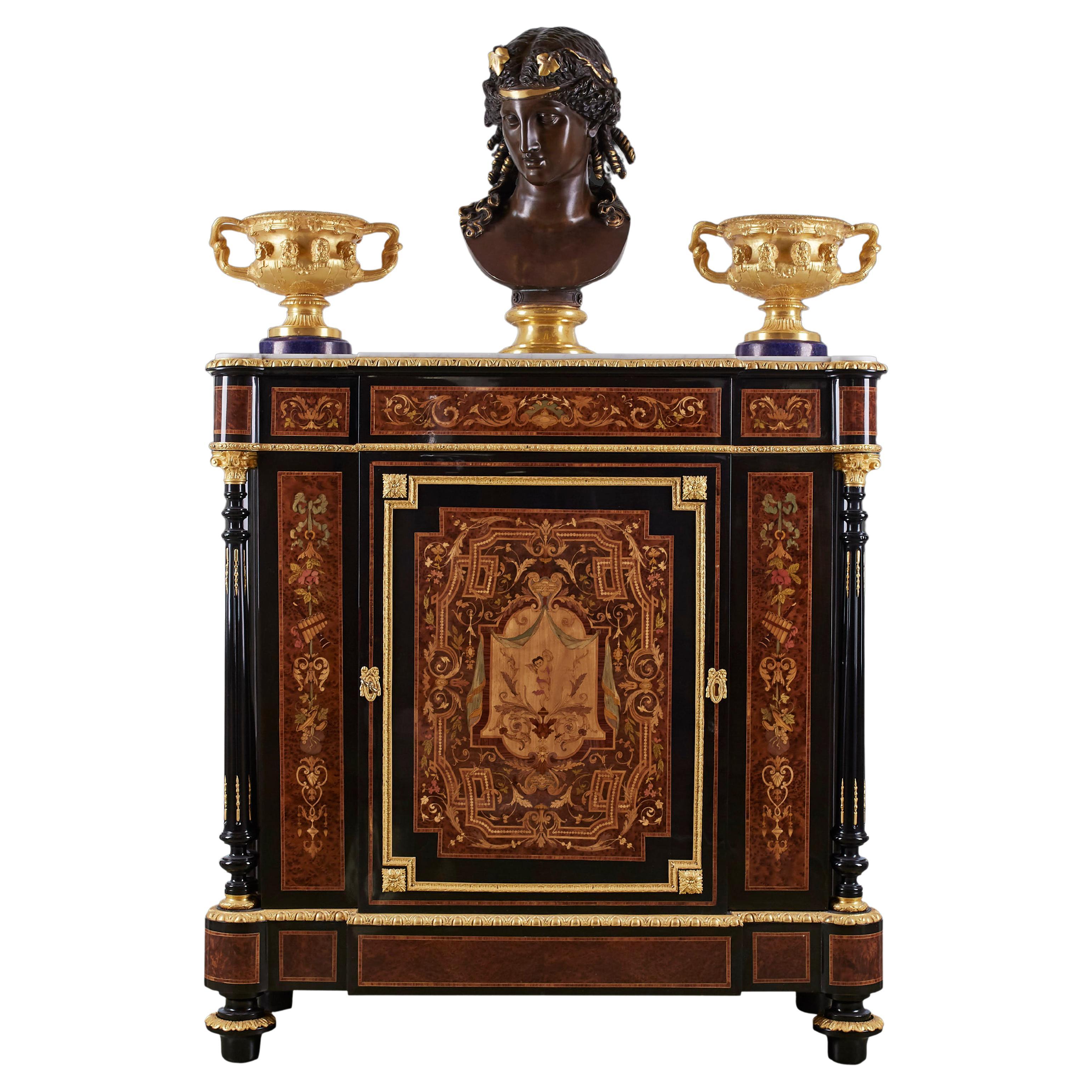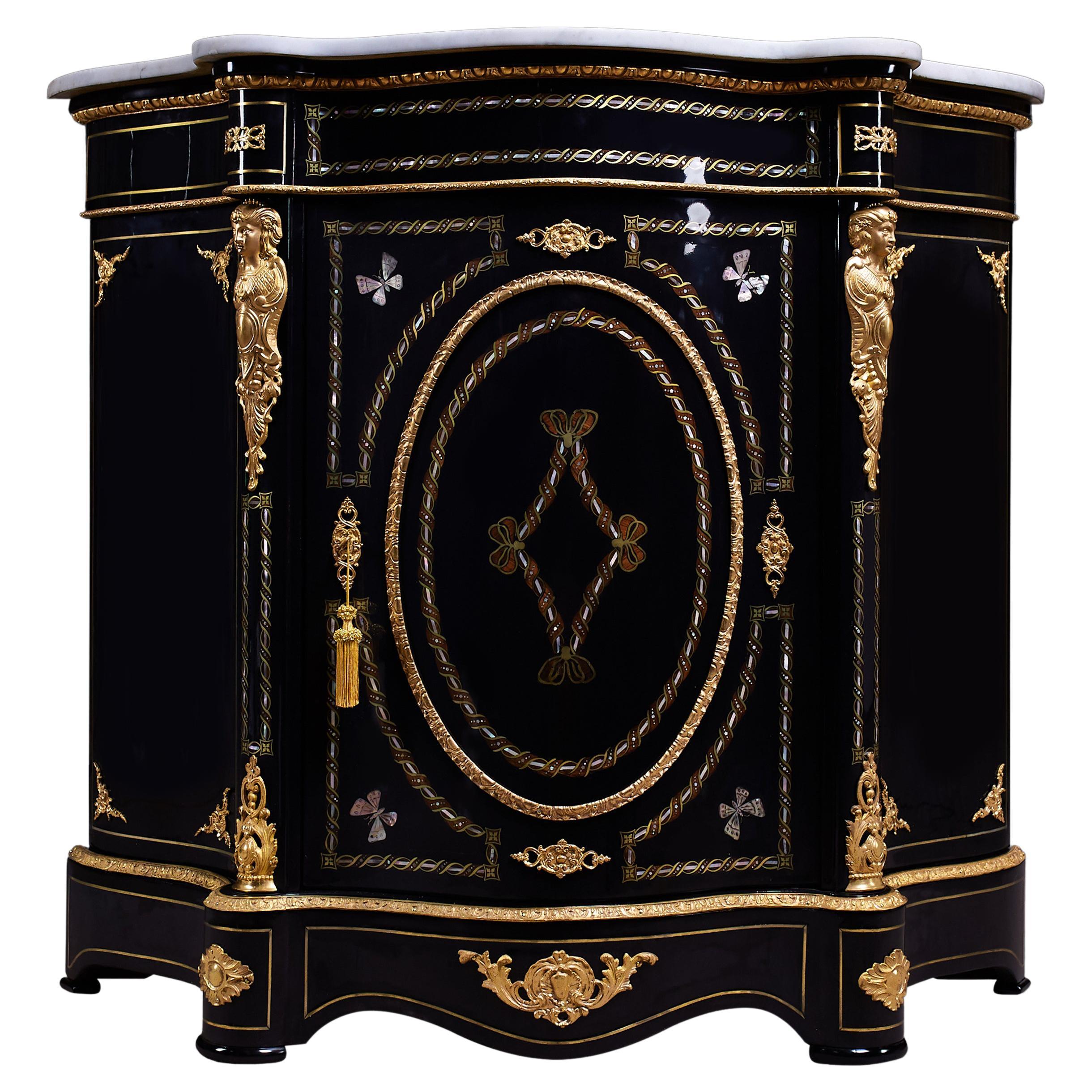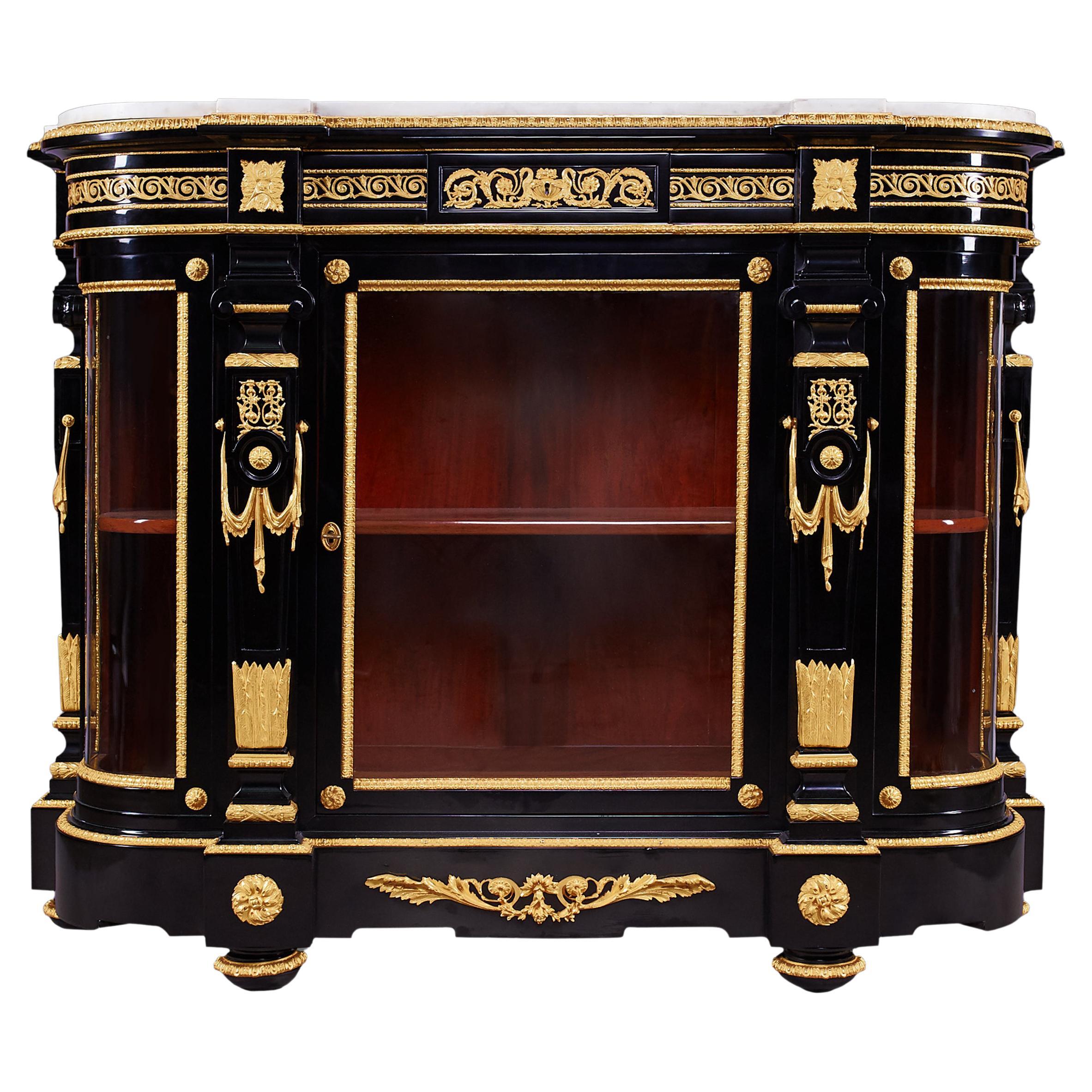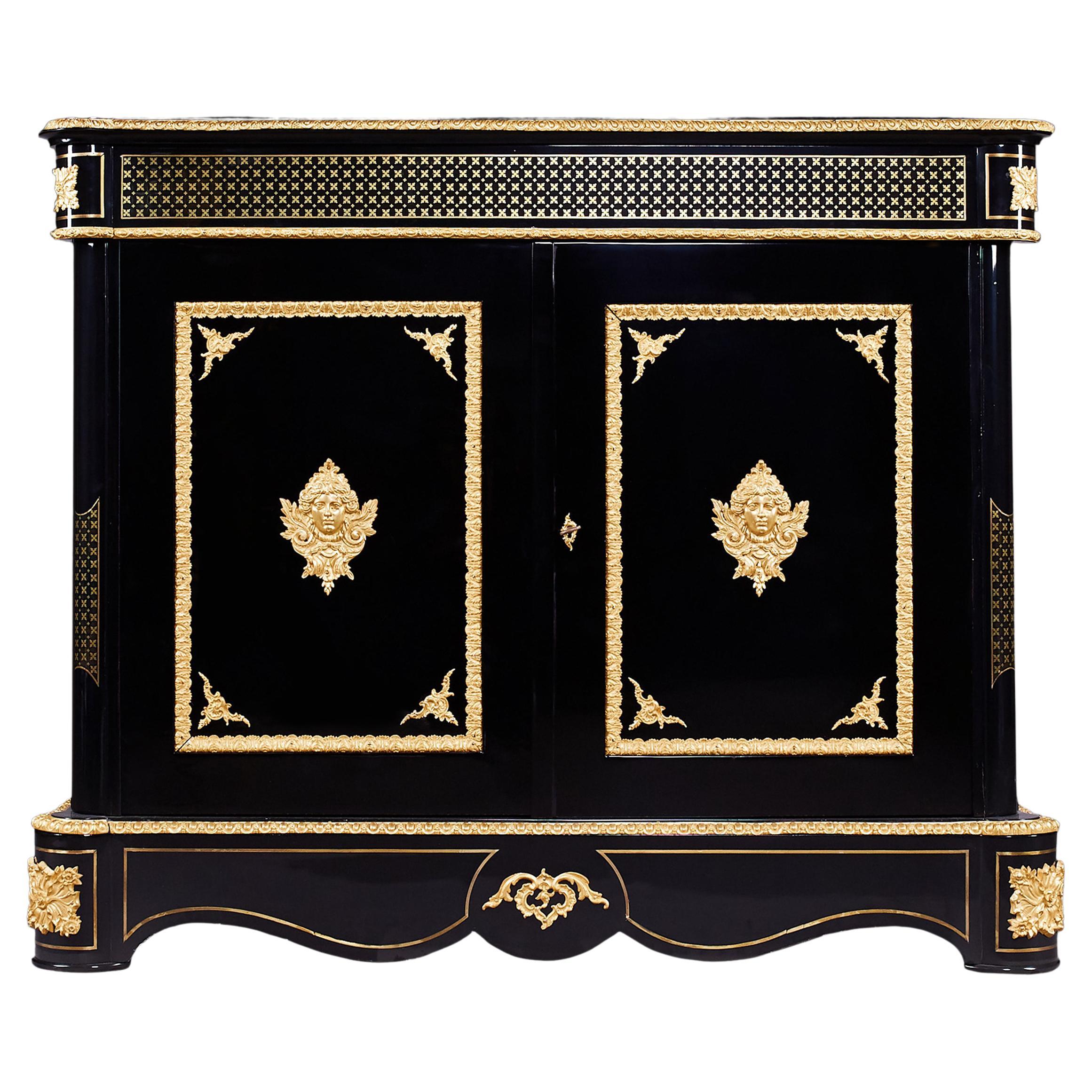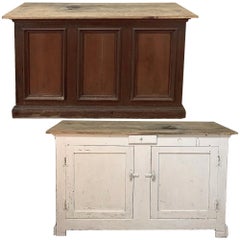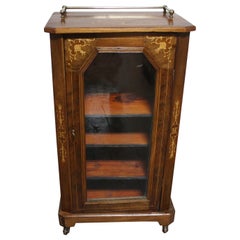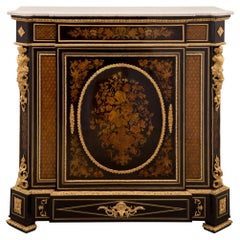
19th Century, Napoleon III Period Walnut & Oak Cabinet for Bar, Counter, Vanity
View Similar Items
1 of 10
19th Century, Napoleon III Period Walnut & Oak Cabinet for Bar, Counter, Vanity
About the Item
- Dimensions:Height: 51 in (129.54 cm)Width: 98 in (248.92 cm)Depth: 23 in (58.42 cm)
- Style:Napoleon III (In the Style Of)
- Materials and Techniques:
- Place of Origin:
- Period:
- Date of Manufacture:1880-1889
- Condition:Wear consistent with age and use. Height to table top is 38".
- Seller Location:Oakville, CA
- Reference Number:1stDibs: LU94627518013
You May Also Like
- Dry Bar, Counter, 19th CenturyLocated in Dallas, TX19th century dry bar, counter is a superb example of rustic craftsmanship at its finest, and features three molded panels for visual interest. Ideal in the game room or for entertain...Category
Antique 1870s Belgian Rustic Dry Bars
MaterialsOak
$1,920 Sale Price20% Off - French 19th Century Bar CabinetLocated in Stockbridge, GASo special piece, this bar cabinet is so charming with a bronze element on the top to protect the glasses of bottles to fall. It wears rolls at the feet to slide it easily.Category
Antique Mid-19th Century French Napoleon III Cabinets
MaterialsWalnut
$1,820 Sale Price35% Off - French 19th Century Napoleon III Period CabinetLocated in West Palm Beach, FLA stunning and extremely high quality French 19th century Napoleon III period ebony, exotic wood, ormolu, brass and white Carrara marble cabinet. The cabinet is raised by handsome bl...Category
Antique 19th Century French Napoleon III Cabinets
MaterialsCarrara Marble, Brass, Ormolu
- French 19th Century Napoleon III Period CabinetLocated in Warsaw, PLA magnificent rectangular black 2-door cabinet in Napoleon III style. Large and small details are gilt, bringing antique and luxurious looks. Brass medallions are centrally mounted on each door and also adorn the upper facade of the cabinet. The inside of the cabinet is divided into three horizontal shelves. At the bottom of the cabinet, there is a figure of a woman's mask, decorated with floral motifs, notably acanthus leaves and it is completed on the side with a rich ornamentation of gilded bronzes caryatides. The borders running along the cabinet are all gilt and engraved with beautiful patterns. On the two cabinet doors, there are two big figures encased in an oval border, representing Apollo, the god of music, and Hermes, the messenger of the gods. Both are the son of Zeus, and they are also frequently present in mythological tales about the other. When Hermes was just a toddler, he once left his cradle to steal the cattle of his half-brother Apollo. Apollo soon discovered that his flock was missing and began to search the surrounding area. Of course, Apollo was the god of prophecy, so he soon found out about the thief and furiously went to Mount Cyllene to find Hermes in his cave. He grabbed the infant and took him to Mount Olympus, to be judged by their master Zeus, the king of the gods. In front of Zeus, Hermes initially denied everything, but in the end, he had to confess. Zeus found the story quite amusing, so he did not punish Hermes, but only required him to return the flock. Hermes regretted what he had done and offered Apollo his lyre as a gift. The lyre was a musical instrument that Hermes had created all by himself from the shell of a turtle. To repay Hermes for his kindness, Apollo returned the gesture by giving Hermes a golden staff...Category
Antique 19th Century French Napoleon III Buffets
MaterialsBronze
- French 19th Century Napoleon III Period CabinetLocated in Warsaw, PLA magnificent rectangular black 2-door cabinet in Napoleon III style. Large and small details are gilt, bringing antique and luxurious looks. Brass medallions are centrally mounted on each door and also adorn the upper facade of the cabinet. The inside of the cabinet is divided into three horizontal shelves. At the bottom of the cabinet, there is a figure of a woman's mask, decorated with floral motifs, notably acanthus leaves and it is completed on the side with a rich ornamentation of gilded bronzes caryatides. The borders running along the cabinet are all gilt and engraved with beautiful patterns. On the two cabinet doors, there are two big figures encased in an oval border, representing Apollo, the god of music, and Hermes, the messenger of the gods. Both are the son of Zeus, and they are also frequently present in mythological tales about the other. When Hermes was just a toddler, he once left his cradle to steal the cattle of his half-brother Apollo. Apollo soon discovered that his flock was missing and began to search the surrounding area. Of course, Apollo was the god of prophecy, so he soon found out about the thief and furiously went to Mount Cyllene to find Hermes in his cave. He grabbed the infant and took him to Mount Olympus, to be judged by their master Zeus, the king of the gods. In front of Zeus, Hermes initially denied everything, but in the end, he had to confess. Zeus found the story quite amusing, so he did not punish Hermes, but only required him to return the flock. Hermes regretted what he had done and offered Apollo his lyre as a gift. The lyre was a musical instrument that Hermes had created all by himself from the shell of a turtle. To repay Hermes for his kindness, Apollo returned the gesture by giving Hermes a golden staff...Category
Antique 19th Century French Napoleon III Cabinets
MaterialsMarble, Bronze
- French 19th Century Napoleon III Period CabinetLocated in Warsaw, PLFrench bronze-mounted Ebonized and Pietra Dura cabinet Empire style ormolu and Pietra dura cabinet from 19th c. Napoleon III ormolu veneered eb...Category
Antique 19th Century French Napoleon III Cabinets
MaterialsMarble, Bronze
